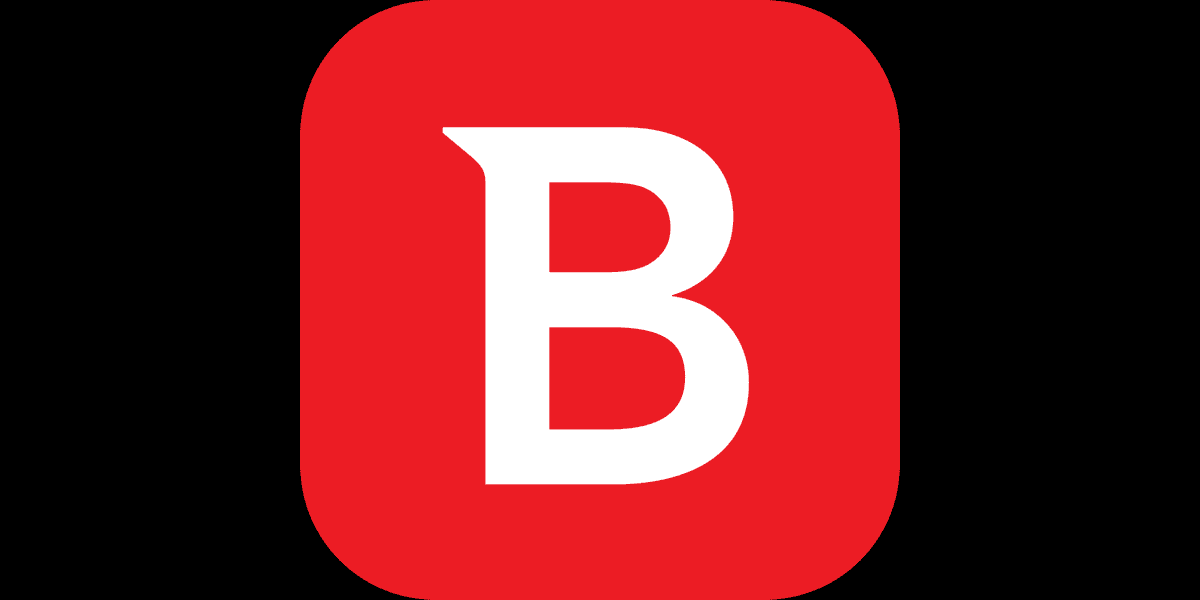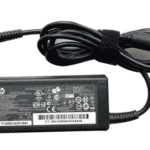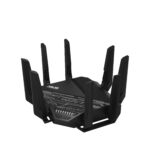As cybersecurity threats continue to grow in complexity and volume, enterprise antivirus solutions are evolving to meet the challenge. In 2025, it’s no longer just about basic malware protection—it’s about comprehensive threat detection, AI-driven prevention, and seamless integration across endpoints, networks, and cloud infrastructure. Here’s a deep dive into the top performers, industry trends, and what decision-makers need to know this year.
🌍 The Market Is Booming
The enterprise antivirus market is undergoing rapid expansion, growing from $10.34 billion in 2024 to an expected $23.25 billion by 2031, driven by a compound annual growth rate (CAGR) of 12.3%. A major force behind this surge is the broader endpoint security market, projected to grow 14.5% CAGR through 2028—largely fueled by the adoption of AI-enhanced detection tools and cloud-native defenses.
Enterprises face a mounting mix of ransomware attacks, insider threats, phishing campaigns, and supply chain vulnerabilities—making robust security investments a top priority across all sectors, including healthcare, finance, manufacturing, and government.
🥇 Leading Antivirus and Endpoint Protection Platforms in 2025
The line between antivirus and full-scale endpoint security has all but disappeared. Today’s top solutions are offering everything from advanced threat hunting to AI-powered automation. Here’s a look at the highest-performing platforms this year:
1. Bitdefender GravityZone
Bitdefender continues to be a favorite in mid-market and large enterprises, thanks to:
- High detection rates
- Cloud-native architecture
- Integrated EDR (Endpoint Detection and Response)
- Minimal performance overhead
Its GravityZone platform offers layered security including patch management, risk analytics, and ransomware mitigation—making it one of the most comprehensive suites available.
2. Sophos Intercept X
Known for its Deep Learning AI, Sophos Intercept X blends signature-based and behavior-based detection. It stands out with:
- Industry-leading ransomware protection
- Automated threat remediation
- Real-time malware rollback
- Flexible deployment across hybrid environments
Reddit tech communities and enterprise IT admins alike have praised Sophos for its intuitive dashboard and transparent analytics.
3. Norton Business
While traditionally strong in the consumer market, Norton’s business offerings now include:
- Enterprise-grade antivirus
- Built-in VPN
- Secure password management tools
- Identity monitoring
Its parent company, Gen Digital, has effectively unified Norton, Avira, and Avast technologies into one of the most diversified cybersecurity portfolios globally.
4. Microsoft Defender for Endpoint
Often bundled with Microsoft 365, this solution has matured into a powerful enterprise-grade tool. It integrates:
- Advanced threat intelligence
- Endpoint behavioral monitoring
- Tight Windows OS integration
- Seamless response workflows
Organizations invested in Microsoft’s cloud ecosystem find this a compelling choice, especially when paired with Sentinel SIEM and Intune.
5. Trellix, Symantec, and Seqrite
These platforms earned top scores in AV-TEST’s April 2025 evaluations for business-grade Windows protection. Notably:
- Trellix (formerly McAfee Enterprise + FireEye) is gaining traction with its XDR strategy
- Symantec continues to serve large-scale deployments with legacy systems
- Seqrite remains a strong contender in APAC markets with value-driven licensing
🔄 Mergers, Acquisitions, and Industry Shake-Ups
The enterprise antivirus space is undergoing aggressive consolidation:
- Trend Micro, a veteran cybersecurity firm, is reportedly in acquisition talks with private equity giants Bain, KKR, and EQT, in a potential $8.5 billion deal. This reflects growing investor appetite for firms with strong cloud and AI security portfolios.
- Gen Digital, which now owns Norton, Avast, Avira, and LifeLock, continues to streamline operations and develop cross-platform threat intelligence solutions. The company’s outlook for 2026 anticipates record-breaking enterprise demand.
These shake-ups could reshape the market, accelerating innovation but also raising concerns over product overlap and licensing complexity.
🤖 Key Technology Drivers in 2025
What sets this year’s solutions apart isn’t just virus scanning—it’s the ecosystem they support. Features defining the best platforms today include:
- AI-Powered Detection: From zero-day vulnerabilities to polymorphic malware, AI models now supplement traditional signature-based defenses.
- XDR & EDR Capabilities: Modern platforms offer cross-layer detection and automated response to threats spanning email, endpoints, networks, and cloud assets.
- Unified Management Consoles: Streamlined UIs and centralized policy management make it easier to enforce compliance and monitor real-time security posture.
- Cloud-native Deployment: Scalability, lower latency, and seamless integration with cloud services (e.g., AWS, Azure, Google Cloud) are now a must.
📌 Quick Comparison: Best Solutions by Use Case
| Use Case | Recommended Solutions |
|---|---|
| Enterprise-class EPP/XDR | CrowdStrike Falcon, Sophos Intercept X, Bitdefender GravityZone, Microsoft Defender for Endpoint |
| SMB-focused, user-friendly | Norton for Business, Avast, ESET Endpoint Security |
| AI & automation-forward platforms | Trend Micro Vision One, Trellix XDR, Bitdefender, Gen Digital tools |
| Budget-conscious global deployments | Seqrite, Kaspersky Endpoint Security Cloud |
✅ Final Take
Enterprise antivirus in 2025 is about far more than detecting viruses. It’s about anticipating threats, automating defense, and integrating security into every digital layer. Whether you’re an SMB or a Fortune 500 company, choosing a modern antivirus platform means investing in a future-proof, AI-enhanced security framework. As cyberattacks evolve, so must your defense.
Best Enterprise Antivirus Solutions (2025)
Protecting your business from digital threats is crucial in today’s ever-changing security landscape. Enterprise antivirus software offers a powerful defense against malware, ransomware, and other cybersecurity risks that target organizations. The best enterprise antivirus solutions provide comprehensive protection while minimizing system impact and offering robust management tools for IT teams.
Companies need reliable security that scales with their operations. From small businesses to large corporations, finding the right antivirus solution means balancing strong protection features with ease of deployment and ongoing management. Top options like SentinelOne, Microsoft Defender for Endpoint, and CrowdStrike Falcon have earned recognition for their effectiveness in enterprise environments, but the best choice depends on your specific business needs and IT infrastructure.
1. Bitdefender GravityZone Business Security
Bitdefender GravityZone Business Security stands out as a top choice for enterprise antivirus protection. It combines powerful threat detection with efficient performance, making it suitable for businesses of all sizes.
The solution recently received recognition through the AV-TEST Award 2023 for Best Protection and Best Performance in the business users category. This dual award highlights its effectiveness at stopping threats without slowing down systems.
GravityZone offers a centralized approach to security management. Administrators can control security policies across the entire network from a single console, saving time and reducing complexity.
The platform uses multiple layers of protection to catch different types of threats. Its advanced scanning engines work to identify malware, ransomware, and zero-day attacks before they can damage company systems.
For businesses seeking more comprehensive protection, GravityZone Business Security Premium adds features like attack forensics and cloud sandboxing. These tools help security teams understand attack patterns and test suspicious files safely.
GravityZone was designed with business efficiency in mind. The lightweight agent uses minimal system resources, preventing the performance issues that often plague other security solutions.
Threat remediation happens automatically in many cases. The system can detect and fix problems without requiring IT staff intervention, reducing downtime and manual troubleshooting.
Bitdefender’s SMB offering provides scaled protection for smaller organizations. These businesses get enterprise-grade security features tailored to their needs and budget constraints.
The platform updates protection continuously through cloud-based threat intelligence. This keeps defenses current against emerging threats without requiring constant manual updates.
2. SentinelOne Singularity Platform
SentinelOne Singularity Platform stands out in the enterprise security landscape as an AI-powered solution that brings multiple security functions together. The platform combines endpoint, cloud, identity, and data protection into a unified system that works seamlessly across an organization.
What makes Singularity different is its use of artificial intelligence to detect and respond to threats. Unlike traditional antivirus programs that rely on known signatures, SentinelOne uses AI to spot unusual behavior that might indicate an attack.
The platform offers autonomous response capabilities that can take action against threats without human intervention. This quick reaction time helps stop attacks before they spread throughout a company’s network.
Security teams appreciate the platform’s visibility features. Administrators can see threats across their entire digital environment through one interface, rather than juggling multiple security tools.
The Singularity Security Data Lake enhances the platform’s effectiveness by collecting and analyzing security data from across the organization. This centralized approach helps teams spot patterns and connections they might otherwise miss.
Businesses looking for ease of use will find SentinelOne appealing. Reviews indicate the platform has a user-friendly interface that doesn’t require extensive technical knowledge to operate effectively.
According to Gartner reviews, many users consider Singularity “one of the best leading platforms” for building enterprise-wide security. The platform continues to receive positive feedback for its comprehensive protection approach.
SentinelOne offers straightforward pricing models that work for various business sizes. This accessibility makes it a practical choice for organizations that need robust protection without complex licensing structures.
3. CrowdStrike Falcon
CrowdStrike Falcon stands out as a powerful endpoint protection solution in the enterprise antivirus market. It uses AI-powered technology to prevent modern threats like ransomware and malware before they can damage your systems.
The platform is known for its light system impact, making it less resource-intensive than many competitors. This means employees can work efficiently without security measures slowing down their devices.
One key feature is the complete USB device visibility and control that helps protect business data. Organizations gain the ability to monitor and manage removable media usage, reducing risks from this common attack vector.
Falcon Enterprise includes next-generation antivirus capabilities backed by world-class threat intelligence. This combination helps companies stay ahead of emerging threats rather than just reacting to known malware signatures.
The solution deploys quickly, with marketing claims stating it can be fully implemented in minutes. This rapid deployment helps security teams protect endpoints without lengthy setup processes.
According to Gartner reviews, many users consider CrowdStrike Falcon one of the best endpoint protection solutions available. The positive feedback suggests strong customer satisfaction among enterprise users.
The platform offers both prevention and detection capabilities. It stops threats before they execute while also identifying suspicious behaviors that might indicate more sophisticated attacks in progress.
For enterprises seeking robust protection with minimal performance impact, CrowdStrike Falcon provides a strong option worth considering. The combination of AI technology, threat intelligence, and ease of use addresses many common enterprise security needs.
4. Microsoft Defender for Endpoint
Microsoft Defender for Endpoint stands out as a strong contender in the enterprise security space. This platform works as an enterprise endpoint security solution that protects against advanced threats.
The service has earned impressive recognition in the industry. It received the Best Advanced Protection 2022 award from AV-TEST and scored top ratings in major antivirus tests for both enterprise and consumer categories.
Microsoft has designed this solution to integrate seamlessly with Microsoft Defender Antivirus. This pairing creates better overall system performance compared to using separate security tools.
Many IT professionals consider it a leading option. According to discussions on Reddit, some experts view Microsoft Defender for Endpoint as the best endpoint security solution currently available.
For small businesses, Microsoft offers Defender for Business, which provides similar protection scaled for smaller operations. Users report it works well against malware and other common threats.
The platform functions as a complete security package rather than just antivirus software. It monitors endpoints continuously and helps security teams respond to potential threats quickly.
Organizations already using Microsoft products may find additional value. The integration with other Microsoft security tools creates a unified defense system that can simplify management for IT departments.
Cost-effectiveness is another factor worth considering. Since many organizations already license Microsoft products, adding Defender for Endpoint might be more economical than purchasing separate security solutions.
The cloud-based approach allows for frequent updates without disrupting work. This helps keep protection current against emerging threats without creating additional IT maintenance burdens.
5. Sophos Intercept X Endpoint
Sophos Intercept X Endpoint offers powerful protection against modern threats. It’s designed to stop advanced attacks before they can harm your systems. The software combines traditional antivirus capabilities with newer security technologies.
The platform provides end-to-end virus protection with a focus on preventing ransomware attacks. This is especially important as ransomware continues to target businesses of all sizes.
Businesses appreciate Sophos for its straightforward management console. IT teams can monitor threats and deploy updates across the network from one central location. This saves time and reduces the complexity of managing enterprise security.
Advanced threat detection capabilities help identify suspicious behavior before it causes damage. The system uses AI to spot potential attacks that might slip past traditional defenses.
Users report that Sophos Intercept X is known for its robust security features and ease of use. This combination makes it suitable for organizations that need strong protection without excessive complexity.
The software includes extended detection and response (XDR) features. These tools give security teams deeper insight into threats across their environment. XDR helps connect the dots between different security events.
Recent reviews from 2025 show that users find Sophos “impressive” for data protection. This suggests the product continues to evolve and meet the needs of enterprise customers.
Sophos Intercept X works well in mixed environments with various operating systems. This flexibility is valuable for companies with diverse technology ecosystems.
6. ESET PROTECT Advanced
ESET PROTECT Advanced offers best-in-class endpoint protection specifically designed to combat ransomware and zero-day threats. This solution combines robust endpoint security with powerful data protection features.
Companies looking for strong cybersecurity will find ESET’s approach particularly effective. The platform provides comprehensive protection without causing significant system slowdowns, which is crucial for maintaining business productivity.
ESET PROTECT Advanced includes full disk encryption capabilities to keep sensitive data secure. This feature helps businesses meet compliance requirements while protecting their information from unauthorized access.
The solution works well for small businesses but can scale to larger operations. According to user experiences, ESET has proven reliable when deployed across small firms with around 20 devices without performance issues.
Cloud-based management makes ESET PROTECT Advanced easy to deploy and maintain. Administrators can control security settings, run scans, and update protection across all endpoints from a central dashboard.
ESET’s threat detection technology uses machine learning and behavioral analysis to identify new threats. This multi-layered approach helps catch sophisticated attacks that might slip past traditional signature-based detection methods.
The platform also offers strong protection against phishing attempts, which remain one of the most common entry points for cybercriminals. This helps safeguard sensitive business data and credentials.
Regular updates ensure the system stays protected against emerging threats. ESET maintains a global threat intelligence network that continuously monitors for new malware and attack techniques.
For businesses seeking comprehensive endpoint security with advanced features, ESET PROTECT Advanced offers a balanced solution. It combines essential protection elements with management tools that don’t require extensive IT resources to maintain.
7. Kaspersky Endpoint Security for Business
Kaspersky Endpoint Security for Business offers strong protection for company devices against various cyber threats. The solution comes in different versions to meet the needs of various business sizes, from small teams to large enterprises.
Companies can choose between cloud-based or on-premise deployment options. This flexibility lets IT teams pick what works best for their current setup and security needs.
The platform includes multi-level adaptive protection that helps block malware, ransomware, and other dangerous programs before they can harm business systems. It also features automated threat defense that works quickly to stop attacks.
One helpful feature is the vulnerability assessment tool. This scans systems to find weak spots that hackers might try to exploit. Fixing these issues early helps prevent successful attacks.
For businesses with mobile workers, Kaspersky includes mobile threat defense capabilities. This protects phones and tablets from harmful apps and network attacks when employees work remotely.
The system also offers endpoint hardening, which makes devices more resistant to attack attempts. This includes controls that limit which applications can run and what they can access.
Kaspersky’s solution comes in different tiers. The Select version provides essential protection against common threats. The Advanced version adds extra security layers for sensitive company data.
IT administrators can manage all protected devices from a single control panel. This makes it easier to apply security policies, monitor threats, and respond to issues across the organization.
For companies concerned about new attack methods, Kaspersky provides protection against fileless threats. These attacks don’t use traditional malware files, making them harder for basic security tools to catch.
8. Avast Premium Business Security
Avast Premium Business Security offers comprehensive protection for businesses looking to safeguard their devices against cyber threats. The solution includes six protection shields combined with AI-powered threat detection to defend against both online and offline attacks.
Registration and installation processes are remarkably fast, making implementation straightforward for businesses of any size. The security package also features USB protection, which helps prevent malware from spreading through removable storage devices.
Small businesses particularly benefit from Avast’s endpoint security solutions, which are specifically designed to meet their unique needs. These solutions provide powerful protection without requiring extensive IT resources to manage.
The platform delivers real-time protection that constantly monitors for emerging threats. This proactive approach helps businesses stay ahead of potential security breaches rather than simply reacting to them after they occur.
Reviews indicate that Avast Premium Business Security includes a wide range of extra security features beyond basic antivirus protection. These additional tools help create multiple layers of defense against sophisticated cyber attacks.
Avast’s business cybersecurity solutions are known for balancing effectiveness with affordability. This makes enterprise-grade protection accessible to organizations with limited security budgets.
The service extends protection to various operating systems, including Linux distributions. This cross-platform capability ensures consistent security across different types of devices within an organization.
For companies seeking reliable protection without complexity, Avast Premium Business Security represents a solid option that combines powerful security features with user-friendly management tools.
9. Norton 360 with LifeLock
Norton 360 with LifeLock offers comprehensive protection for enterprises seeking both device security and identity protection in one package. This solution combines advanced security features with identity monitoring services.
The platform provides protection for multiple devices, including PCs, Macs, and mobile devices. Users can secure up to 10 devices with device security features, making it suitable for small to medium-sized business teams.
One standout feature is the AI-powered Genie Scam Protection, which helps detect sophisticated scams targeting businesses. This technology works to identify threats before they compromise sensitive company information.
For companies concerned about data backup, Norton offers secure Cloud Backup with plans including 250 GB of storage. This feature ensures business continuity in case of ransomware attacks or data loss incidents.
The Secure VPN feature adds another layer of protection when employees connect to public Wi-Fi networks. This helps safeguard company data when team members work remotely or travel.
Identity protection through LifeLock monitors for suspicious activities that might indicate compromised business credentials. This service can alert companies to potential identity theft issues before they escalate.
The Norton 360 with LifeLock Ultimate Plus tier offers enhanced protection with 500 GB of secure Cloud Backup. This premium option suits businesses with greater storage needs and security concerns.
Norton’s U.S.-based restoration team provides support if identity theft occurs. This resource helps businesses recover more quickly from security incidents that impact employee or company identities.
Companies looking for all-in-one cyber protection will find Norton 360 with LifeLock combines security software with financial protection services. The integration of these tools simplifies enterprise security management.
10. Webroot SecureAnywhere for Mac
Webroot SecureAnywhere offers Mac users a lightweight antivirus solution that won’t slow down their devices. Unlike bulkier security programs, Webroot scans take about 20 seconds, up to 60 times faster than competing products.
The software requires minimal disk space, making it ideal for businesses that need to protect Mac computers without sacrificing performance. Mac users can continue working without interruptions while Webroot runs in the background.
Webroot earned excellent scores in hands-on antivirus tests, though some independent labs haven’t published extensive data on its Mac version. The cloud-based protection system monitors threats in real-time, keeping enterprise systems secure.
For organizations with mixed device environments, Webroot provides a unified solution. The program protects users no matter how or where they connect to the internet, making it suitable for remote and hybrid work settings.
The security features include virus and malware blocking and removal. It also warns against fake or potentially harmful websites, adding a layer of protection for enterprise users who may access various online resources.
Enterprise administrators appreciate the centralized management options that allow them to monitor security across all Mac devices from a single dashboard. This streamlines the security oversight process for IT departments.
Webroot offers scalable licensing options for businesses of different sizes. Companies can protect multiple Mac devices with flexible plans that grow with their needs.
With increasing cyber threats targeting Mac systems, Webroot provides businesses with necessary protection without the performance drawbacks of traditional antivirus programs. Its cloud-based approach means threat definitions stay current without manual updates.
Importance of Enterprise Antivirus
Enterprise antivirus software serves as a critical defense mechanism for businesses against the growing landscape of cyber threats. It goes beyond simple virus detection to provide comprehensive protection that safeguards both data and business operations.
Protecting Sensitive Data
Enterprise antivirus solutions play a key role in safeguarding valuable company information. Businesses store massive amounts of sensitive data including customer records, financial information, and proprietary research that hackers actively target.
Modern threats like ransomware can encrypt crucial files and demand payment for their release. Antivirus software can protect businesses from these attacks along with other dangers such as viruses, worms, and Trojans.
The financial impact of data breaches can be devastating. Companies face both immediate costs from ransom payments and long-term damages to their reputation and customer trust. A single breach can cost millions in recovery expenses.
Enterprise-grade antivirus provides real-time monitoring and advanced threat detection capabilities that identify suspicious activities before they cause harm. These systems often include:
- Behavior-based detection methods
- Automated quarantine procedures
- Threat intelligence updates
- Network traffic analysis
Compliance with Industry Standards
Many industries have strict regulatory requirements regarding data protection. Failure to maintain proper security measures can result in heavy fines and legal consequences.
Enterprise antivirus solutions help businesses meet compliance requirements for standards such as GDPR, HIPAA, PCI DSS, and SOX. These regulations often specifically mandate the use of security software including antivirus protection.
Antivirus is not just a tool but a fundamental pillar of cybersecurity that protects data integrity and business continuity. It provides necessary documentation and reporting features that demonstrate compliance during audits.
Regular security updates and patch management, typically included in enterprise antivirus packages, ensure systems remain protected against newly discovered vulnerabilities. This ongoing protection helps maintain compliance even as threats evolve.
Key Features to Consider
When selecting enterprise antivirus software, certain features are essential for protecting your business effectively. Security solutions need to provide both immediate threat handling and adapt to your organization’s changing needs.
Real-Time Threat Detection
Real-time threat detection forms the backbone of any effective enterprise antivirus solution. Modern security systems use advanced behavioral analysis techniques to identify unusual patterns that might indicate an attack.
The best enterprise antivirus tools offer:
- Continuous monitoring of all network activity
- AI-driven insights to detect zero-day threats before signatures are available
- Heuristic scanning to identify suspicious behavior patterns
- Low false positive rates while maintaining high detection accuracy
Businesses should look for solutions that don’t just rely on signature-based detection. Today’s threats evolve quickly, making comprehensive protection against viruses, malware, spyware, and ransomware critical.
Response time matters too. When a threat is detected, immediate alerts and automatic containment features prevent wider system compromise.
Scalability for Business Growth
Antivirus solutions must grow alongside your business without performance penalties or administrative headaches. Performance impact should be a key consideration when evaluating options.
Scalable enterprise antivirus software typically includes:
- Centralized management console for deploying updates and policies
- Cloud-based infrastructure that scales without additional hardware
- Flexible licensing models that accommodate changing staff numbers
- Multi-site support for businesses with distributed workforces
IT teams should assess how easily the solution deploys across different device types. This includes workstations, servers, mobile devices, and virtual environments.
Resource efficiency is particularly important as businesses scale. Solutions that consume excessive CPU or memory can significantly impact productivity across hundreds or thousands of endpoints.
Frequently Asked Questions
Enterprise antivirus selection requires careful consideration of several key factors including detection capabilities, system impact, and specific business needs. Many IT managers struggle with choosing the right solution for their organization’s unique requirements.
What are the top-rated enterprise antivirus solutions according to recent industry analyses?
Bitdefender GravityZone Business Security consistently ranks among the highest-rated enterprise antivirus solutions. The platform offers advanced threat detection and response capabilities while maintaining minimal system impact.
CrowdStrike Falcon has gained significant recognition for its cloud-native approach and powerful endpoint protection. Its threat hunting capabilities and ease of deployment make it popular among larger enterprises.
SentinelOne Singularity Platform stands out for its autonomous AI-driven protection. Many companies appreciate its ability to detect and remediate threats without human intervention.
Microsoft Defender for Endpoint has improved dramatically in recent years. It now competes directly with dedicated security vendors and offers tight integration with Windows environments.
Sophos Intercept X Endpoint receives praise for its ransomware protection capabilities and comprehensive management console.
How do different enterprise antivirus programs compare in terms of detection capabilities and system performance?
Detection capabilities vary significantly between products. CrowdStrike Falcon and SentinelOne typically score highest in independent tests for zero-day threat detection, while Bitdefender excels at catching known malware.
System performance impact remains a critical consideration. Microsoft Defender offers minimal impact on Windows systems, while some solutions like Sophos may require more resources during full system scans.
Real-time protection capabilities differ as well. Norton’s solution provides excellent real-time protection but might use more system resources than lighter alternatives.
Cloud-based solutions typically offer better performance than traditional on-premises options. This shift toward cloud architecture has helped reduce the performance penalties traditionally associated with comprehensive protection.
Which antivirus solutions are recommended for small to medium-sized businesses?
Bitdefender GravityZone Business Security works exceptionally well for SMBs due to its balance of powerful protection and reasonable pricing. Its centralized management makes it suitable for companies with limited IT staff.
Norton AntiVirus Plus offers strong protection that can scale up to 100 devices, making it appropriate for growing businesses that need flexible licensing.
Microsoft Defender for Endpoint provides a cost-effective option for businesses already invested in the Microsoft ecosystem. The integration with existing tools reduces management overhead.
Malwarebytes Premium Security offers a lightweight solution that works well for smaller organizations. Its simplicity and effectiveness at removing active infections make it popular among companies with basic security needs.
TitanHQ solutions provide comprehensive protection including email security and DNS filtering, making them suitable for businesses needing multi-layered defense.
What considerations should be made when choosing an antivirus for enterprise-level security needs?
Scalability should be a primary consideration for enterprises. Solutions must effectively protect thousands of endpoints without becoming unmanageable.
Integration capabilities with existing security tools matters significantly. The ability to work with SIEM solutions and other security platforms creates a more cohesive security posture.
Threat intelligence quality varies between vendors. CrowdStrike and Microsoft leverage massive data sets to identify emerging threats faster than competitors with smaller customer bases.
Management overhead differs substantially between products. Choosing the right solution requires evaluating your IT team’s capacity and expertise.
Compliance requirements may dictate specific security capabilities. Certain industries require particular certifications or features that not all antivirus solutions provide.
Can you provide examples of enterprise antivirus software used by government entities?
Microsoft Defender for Endpoint has significant adoption within government agencies. Its FedRAMP certification and integration with government-focused compliance tools make it suitable for sensitive environments.
CrowdStrike Falcon sees extensive use in federal agencies. The platform’s advanced threat hunting capabilities align well with the sophisticated threats targeting government infrastructure.
Sophos Intercept X has been deployed across various state and local government entities. Its ransomware protection features address a growing concern for public sector organizations.
SentinelOne has secured contracts with numerous defense-related agencies. The autonomous protection approach minimizes the need for specialized security personnel.
Government adoption often follows stringent evaluation processes focused on security effectiveness rather than cost considerations.
What are the essential features to look for in an antivirus to ensure robust endpoint security for businesses?
Advanced threat detection capabilities should utilize multiple techniques including signature-based, heuristic, and behavioral analysis. The best solutions employ AI to identify previously unknown threats.
Endpoint Detection and Response (EDR) functionality provides visibility into attacks and automated responses. This capability has become standard in enterprise-grade protection.
Centralized management consoles save time and improve security posture. The ability to deploy policies and updates from a single interface reduces administrative burden.
Ransomware-specific protections have become essential. Features like double anti-virus protection and file backup capabilities help mitigate this growing threat.
Regular, automated updates ensure protection against emerging threats. Solutions should update multiple times daily without disrupting business operations.







